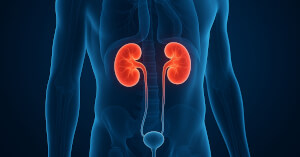
NettleBenefits, Uses & Dosage
Nettle is used to reduce inflammation, support urinary tract health, and alleviate allergy symptoms.
Nettle (Urtica dioica), also known as stinging nettle, is a wild green plant traditionally used for its anti-inflammatory and diuretic properties. Both the leaves and root are used for different health applications.
The leaves may support joint health and allergy relief, while the root is commonly used for prostate and urinary tract support. It contains flavonoids, lignans, and minerals beneficial for overall wellness.
Nettle is taken for inflammation, seasonal allergies, and urinary health. While widely used in herbal medicine, more controlled clinical trials are needed to support its various traditional uses.
Other names & forms of Nettle supplement : urtica dioica, stinging nettle, nettle leaf, nettle root, nettle extract
Benefits
Whether used for daily wellness or specific concerns, nettle may provide several helpful benefits:
- It may reduce symptoms of enlarged prostate and support Prostate Health.
- Nettle is traditionally used to ease joint pain and inflammation, contributing to Bones & Joints.
- Its antihistamine-like effects may help with seasonal allergies, benefiting Immunity.
Dosage
The Nettle supplement dosage is personalized to meet individual health needs and medical advice:
- Allergy and prostate support: 300–600 mg/day of Nettle leaf extract.
- Anti-inflammatory use: Up to 1200 mg/day, divided in 2–3 doses.
- Dried leaf tea: 2–4 grams/day infused in hot water.
- Recommendation: Use leaf form for allergies and root for prostate; well tolerated in long-term use.
Side Effects
Nettle can provide anti-inflammatory and allergy relief, but some users notice mild effects during initial use. Watch for:
- Mild stomach upset, nausea or stomach cramps, especially when taken without food
- Possible mild headache or dizziness in sensitive individuals
- Occasional skin rash or itching when handling fresh nettle leaves
- Temporary fluid retention or mild edema in a few users
- Rare hypotension, lightheadedness or faintness, when taken at higher doses
Interactions
Possible interactions include:
- Blood pressure medications: Nettle may have diuretic and vasodilatory effects; when used with ACE inhibitors or L-Arginine, monitor blood pressure to prevent hypotension.
- Anticoagulant and antiplatelet therapies: Nettle’s mild antiplatelet action can compound warfarin or supplements like Garlic, increasing bleeding risk.
- Diuretics: Its natural diuretic properties may potentiate drugs such as furosemide or herbs like Dandelion Root, affecting electrolyte balance.
- Antidiabetic agents: Nettle may improve insulin sensitivity; combined with insulin or Cinnamon, monitor for hypoglycemia.
Precautions
Before adding Nettle to your regimen, ensure you’re not in any of these precautionary categories. If you are, check with your healthcare provider:
- Pregnant or breastfeeding women: Limited safety data; avoid using fresh leaf form, and use supplements only under medical advice
- Individuals with hypotension: May further lower blood pressure; monitor levels closely
- People with kidney disease: Potential diuretic effect; use cautiously and monitor kidney function
- Those on blood-thinning medications: Nettle may have mild anticoagulant effects; monitor clotting parameters
- Patients scheduled for surgery: Discontinue at least two weeks prior, possible bleeding risk and interference with anesthesia
Studies
These studies provide scientific insights into Nettle benefits:
A 2011 randomized, double-blind trial in 100 men with benign prostatic hyperplasia found 600 mg/day Urtica dioica root extract for 12 weeks reduced IPSS symptom scores by 24% versus 8% with placebo.
A 2017 crossover study comparing nettle and tamsulosin reported no significant difference in peak urinary flow improvement over 4 weeks (ns), indicating limited efficacy for LUTS.
A 2015 pilot RCT in 30 patients with allergic rhinitis showed daily nettle leaf capsules (300 mg) for 8 weeks did not significantly change nasal symptom scores versus placebo (ns).
Despite traditional use for joint pain, no RCTs have assessed Urtica dioica for osteoarthritis or rheumatoid arthritis pain relief.
This article was originally published on Stackbb.com, your trusted source for science-based supplement guides.
Related Articles
Important Disclaimer: The information provided on this page about Nettle supplement is for informational purposes only and has not been reviewed or validated by a medical professional. It is not intended to substitute professional medical advice, diagnosis, or treatment. Always consult your doctor or qualified healthcare provider before starting, stopping, or changing any supplement or part of your healthcare regimen. Individual needs and responses to supplements may vary, and what works for one person may not be appropriate for another.








